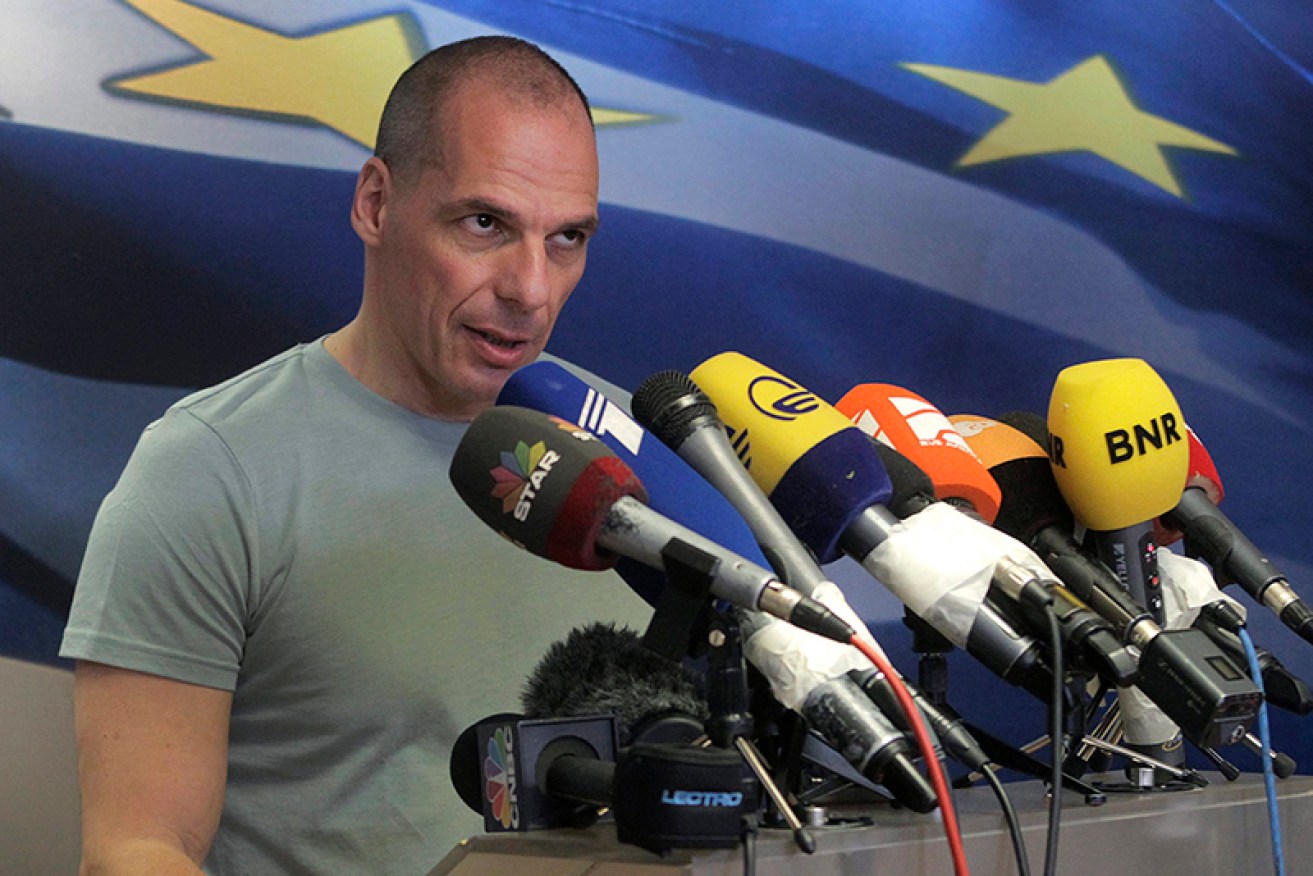Why the new financial year looks like a dud


df
Well, we’re 10 days into the new financial year, and it’s already shaping up to be a dud. The main reason for that is China’s downturn, so let’s start there.
• How Australia is caught in a China feedback loop
• Greece just meets deadline
• Unemployment likely to rise
• Peter Costello is wrong. You can trust super
What the devil is going on in China?

Pudong, home of the Shanghai Stock Exchange. Photo: Shutterstock.
China’s stockmarket has been in free-fall for the last month, and this week it began to look serious.
Those who like a bit of drama (‘bears’ in financial speak) were quick to declare that Armageddon is here. The incorrigible optimists (‘bulls’), meanwhile, downplayed it as an overreaction on the part of financially illiterate shareholders who treat the stockmarket as a casino.
So who is right? Only time will tell. Economists and market analysts are notoriously terrible at predicting financial crises. Hardly any saw the 2008 crash – the biggest in 80 years – coming.
The reason is financial markets are impossibly complicated beasts whose movements depend on infinite interconnected variables. So whether the current volatility in China is the beginning of a major crash remains to be seen.
But the signs don’t look great. And if it proves to be the beginning of major downward trend, that is very bad news for Australia. It’s no exaggeration to say our economy is at the mercy of China’s. The Chinese are by far our biggest trading partner, accounting for $100 billion of exports in 2013. More than half of that was iron ore, the price of which fell below $45 dollars a tonne this week – a seven-year low.
By way of comparison, our number two trading partner, Japan, accounted for $50 billion in exports, and our third biggest, the US, for $40 billion. The message is clear: we need China to stay strong.
A storm brewing in the Mediterranean
Following the dramatic referendum result in Greece on Sunday, this week the left-wing Syriza government got down to business with an irrefutable popular mandate.

Yanis Varoufakis sporting a t-shirt as he delivers one of his last press conferences as the world’s coolest finance minister. Photo: AAP
PM Alexis Tsipras’ first move was a surprise: he asked Finance Minister Yanis Varoufakis – the poster boy for the movement (and, to give it an Aussie spin, a former Sydney University academic) – to stand down. It subsequently emerged that Varoufakis’ relationship with European creditors had deteriorated to a point where he was probably doing more harm than good.
Maybe that’s just what happens when cool people try to be politicians.
On Thursday, the Greek government delivered its proposal to its European creditors. In return for a €53.5 billion bailout, the government has reportedly promised to raise taxes and cut spending on pensions and defence.
European leaders will meet over the weekend to decide whether or not to accept the proposal. If they agree, then it will be crisis averted … for now.
If they don’t, it could lead to a Gr(eek)exit from the euro. No one knows what the knock-on effects of that will be, except that they will be big.
Back home: unemployment confusion
While Bill Shorten was hogging the air-time with his appearance before the Royal Commission into union corruption, a piece of important economic news slipped under the radar: the jobless figure had risen.
Or had it? A month ago, the Bureau of Statistics said the jobless figure for May was 6 per cent. But now they say they got that wrong, and it was actually 5.9 per cent. However, they said it went up to 6 per cent in June. The ABS appears to have a bit of a problem calculating how many people are out of work.

The unemployment rate went up in June … and is expected to keep going for a while.
At any rate, the general consensus among economists was that unemployment is likely to get worse before it gets better. Why? Because Australia is still an economy in transition, out of a focus on mining and into … well, we don’t really know what.
In the words of Capital Economics Australian economist Paul Dales, as quoted by Fairfax, “It seems to us that it must just be a matter of time before the labour market responds to the weaker economic backdrop. At some point, the fall in corporate profits and cancellation of investment projects will lead to weaker jobs growth and a higher unemployment rate”.
Changes to the super system
It wasn’t reported as good news, but it should have been. The Productivity Commission came out with some recommendations on the super system, and one of them was that Australians are using their superannuation in the right way: to provide income in retirement.
This should put to bed the oft-repeated claim that when Aussies get their hands on their super, they blow the lot on luxury holidays and shiny new cars, and spend the rest of retirement bludging off the government via the age pension.
But there was another recommendation that is harder to spin in a positive way: lifting the preservation age – the age you can start drawing down on your super – to 65.
Both major parties ruled this out. But the likelihood is they will eventually have to do it. The population is ageing and we are all living much, much longer.
This is a problem for nations across the globe, a byproduct of better healthcare and health education.
In the old days people used to die a few years after retiring. Now, we live another 20 or 30 years. And someone has to pay for that.








